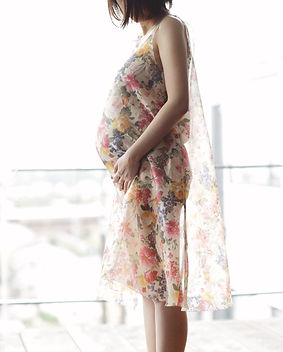annette_kowarin61@hotmail.com
07712 813168
How often does my baby need to breastfeed?
All mothers and babies are different and you and your baby will work out your own feeding patterns together. As a very rough guide, your baby should feed at least eight times or more every 24 hours during the first few weeks.
Don't worry about feeding your baby whenever either of you wants. You can't overfeed a breastfed baby and your baby won't become spoilt or demanding if you feed them whenever they're hungry or need comfort.
How long should each breastfeed last?
Every baby is different. Some babies want frequent short feeds and others prefer feeding for longer, or a mixture of the two. Let your baby finish the first breast, then offer the second. If your baby feeds all the time and you're worried, speak to your midwife, health visitor or a breastfeeding specialist. You may need some help with positioning and attachment. You can also call the National Breastfeeding Helpline on 0300 100 0212.
How long should I breastfeed for?
Exclusive breastfeeding (breast milk only) is recommended for around the first six months of your baby's life. Breastfeeding alongside family foods are best for babies from six months. You and your baby can carry on enjoying the benefits of breastfeeding for as long as you like. Breastfeeding into your baby's second year or beyond alongside other foods is ideal. Lots of mothers carry on breastfeeding when they go back to work or college - read more about breastfeeding after returning to work. You don't have to stop if you get pregnant again either.
Can I breastfeed after a caesarean?
Yes, you can. Make sure you get a skin-to-skin cuddle with your baby as
soon as you're able to. Your midwife may help you have a skin-on-skin cuddle in theatre or in the recovery room. If you keep your baby close to you and maintain lots of skin-to-skin contact, you'll be able to put them to the breast often and this will stimulate your milk supply. After a caesarean, you might find the 'rugby hold' where the baby's body is around the side of your body, supported by your arm the same side, is preferable to having them lying against your stomach. Ask your midwife about pain relief so you can feed your baby more comfortably.
Are there any reasons why I shouldn't breastfeed?
Very occasionally, there are sound medical reasons for not breastfeeding - for example, if you have HIV or, in rare cases, you're taking medication that could harm your baby, such as drugs for treating cancer. If you're not sure whether you should breastfeed your baby, speak to your midwife or health visitor for information and support.
Why is 'responsive feeding' so important?
A newborn baby's stomach is only the size of a walnut, so they need to feed little and often. Your baby can have a good feed and be hungry again quite quickly. This is why 'responsive feeding' also called 'baby-led' or 'on-demand' feeding is so important. "The idea is that you 'respond' to your baby's cues," says Zo Ralph, an early years team leader in Manchester. "Breastfeeding is not only about getting milk into your baby. Your baby feeds for comfort and reassurance, too."


